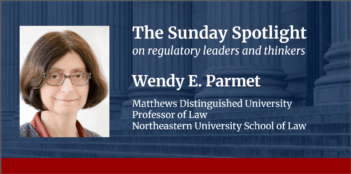
Executive and legislative branches of Spain’s government wield debatable legal authority in times of crisis.
Debates about the regulatory response to COVID-19 in Spain reflect similar concerns as those in other countries. Public opinion and political parties disagree mainly about whether public institutions reacted timely or late, as well as about the measures adopted and the legal means used to face the crisis.
As in other countries, Spanish authorities have made use of emergency powers. The Spanish Constitution allows certain branches of government to declare a state of alarm, a state of emergency, and a state of siege—or martial law. Each declaration exerts a different impact on constitutional rights and is adopted following specific procedures. The Spanish Constitution specifies further which rights may be suspended when a state of emergency or siege is declared, although no suspension of constitutional rights is allowed in a state of alarm.
The Spanish executive branch, through a decree by the Council of Ministers, can declare a state of alarm for a maximum of 15 days. The Lower Chamber of Parliament—Congreso de los Diputados—must be informed of this decree and must convene immediately when a state of alarm is issued. Only upon the Lower Chamber’s authorization may this period be extended.
Unlike a state of alarm, neither a state of emergency nor siege has occurred in Spain’s recent democratic history. The constitutional provisions for establishing a state of alarm, emergency, or siege need to be read together with the Organic Statute 4/1981 on the states of alarm, emergency, and siege, which further develops the above-mentioned constitutional provisions.
The Council of Ministers issued Royal Decree No. 463/2020 on March 14, declaring a state of alarm to manage the health crisis provoked by COVID-19. Although this decree was issued by the executive, it has the same legal force and value as statutes passed by Parliament, as the Constitutional Court of Spain established in a 2016 judgment.
The present state of alarm has two major effects. First, it imposes a general lockdown on the population. Second, it confers overall command powers to the central government. The Lower Chamber of Parliament has extended the present state of alarm on several occasions for periods of 15 days.
Although some discussions have taken place in Parliament, only minor changes to the state of alarm have been added so far to the original proposals sent for approval by the Council of Ministers. This is aligned with institutional responses to the crisis in other countries, as the preeminence of the executive vis-à-vis the legislature is a recurring feature of government response. Notwithstanding this pattern, political tension has increased recently, and the opposition in Parliament to harsh executive measures may contribute to the rejection of future extensions with presently unknown consequences.
Some contend that the circumstances surrounding the COVID-19 outbreak did not require making use of such extraordinary general emergency powers. In conformity with the States of Alarm, Emergency, and Siege Statute, a state of alarm can indeed be declared in health crises such as epidemics. Yet due to the state of alarm’s constitutional impact, and bearing in mind the decentralized territorial structure of Spain as well as the principle of proportionality, some have argued that the legal framework to face the crisis could have been found elsewhere.
The General Public Health Law 33/2011, for example, may be an adequate alternative legal instrument to deal with epidemics, although it has its limitations. Public health under this statute is defined as a set of activities organized by public bodies to prevent illness, as well as to protect, promote, and recover people’s health at the individual and collective level through health, sectoral, and cross-cutting actions.
The General Public Health Law requires that actions undertaken pursuant to its provisions shall be informed by several principles, namely those of proportionality, safety, transparency, and equity. It is also necessary to respect principles promoting a gender-cognizant perspective and the reduction of social inequalities. In addition, the precautionary principle is expressly envisaged in the law, which requires that public health actions are consistent with the following scope: “the existence of founded indications of a possible serious affection of the health of the population, even where there is scientific uncertainty about the nature of the risk, will determine the cessation, prohibition or limitation of the activity on which they occur.” This law also lists citizens’ rights, public administration’s duties, other aspects of the legal framework for public health, such as health promotion and surveillance, and concludes with a set of public offenses and fines.
A law such as the General Public Health Law might have constituted a sufficient legal basis for some of the response measures that Spain adopted. In fact, many deem a response under the General Public Health Law more appropriate for a country with a decentralized territorial structure than a declaration of a state of alarm, as the latter provides extraordinary powers to the central government to the detriment of regional governments. Given that the General Public Health Law is a sectoral law and not a general emergency law, it may also have helped structure political and public debates in a less war-like way, with greater emphasis on care and safety.
Nevertheless, there are serious doubts about whether the General Public Health Law approach would authorize a general lockdown for the entire population, given how the law stands today. A statutory response must be implemented consistent with the Organic Law 3/1986 on special measures in the field of public health, which itself does not seem to provide a sufficient legal basis for extensive measures such as national lockdowns. Granted, potentially expansive interpretations of these statutes may be yet to come, so it is an open question whether these statutes could serve as the basis for effective pandemic responses. Without such interpretations, however, the most reasonable proposal from a regulatory perspective involves future legal reforms to design instruments adequate to deal with epidemics.
The Spanish government’s responses to the health crisis have generated various debates. Some argue that a decentralized yet coordinated approach to the crisis would have been not only in greater conformity with the Constitution but also more effective.
In addition, one contemporary debate within Spanish scholarship is whether the legal framework that provides for the state of alarm forms a sufficient basis for the type of measures adopted by the government—in particular, whether a strong lockdown with limited exceptions is compatible with the Constitution’s guarantee of freedom of movement. Some argue, instead, that a state of emergency, and not a state of alarm, should have been declared.
Subtle discussions have been conducted about the concept of suspension versus limitation of constitutional rights, thus leading to different conclusions about whether the adopted measures exceed the government’s authority under the existing legal framework. Political perspectives about the government’s performance in this crisis are very much aligned with these views.
Furthermore, one of the main differences between a state of alarm and state of emergency is the role of the legislature. The declaration of a state of emergency always requires the prior authorization of the Lower Chamber, whereas Parliament’s intervention in the state of alarm is ex post. Yet the present state of alarm has been extended several times so far, always with authorization by the Lower Chamber. The Parliament has thus been present to a great extent during the process.
The imposition of fines on people contravening the state of alarm measures are controversial from a legal and social perspective. After the Council of Ministers issued its decree declaring the state of alarm, doubts arose as to the exact content of infringements as well as what fines would be imposed for what infringements.
The decree includes general limitations on free movement, followed by a set of exceptions—although this list of exceptions has slowly grown over time. Whether a particular activity could be considered an exception was and is crucial, as this determines whether a fine can be imposed. Many deem ad hoc interpretations by police agents or local authorities expanding the scope of restrictions and prohibitions to be contrary to the principle of legality. In fact, the Spanish Ombudsman has initiated an investigation to check whether the law has been correctly applied in these cases according to constitutional principles.
Not only are infringements unclear, but fines also are not specifically included in the decree declaring the state of alarm. The decree refers in general to “the laws applicable,” which has been understood as referring to the Organic Statute 4/2015 on the protection of citizen security, a law that was highly criticized when it was passed due to its impact on constitutional rights. This law—now under the scrutiny of the Constitutional Court—is providing the legal basis for infringement proceedings that lead to the imposition of a fine.
The complex legal, social, and political realities of Spain’s response to the COVID-19 pandemic may share many aspects in common with regulatory responses in other jurisdictions. From a legal perspective in Spain, the lack of updated and appropriate legislation to deal with this type of situation is a major issue. Transparency, legal certainty, and coordination are three key concepts which require attention during the COVID-19 crisis and in future crises. And as in other countries, the risk of emergency powers consolidating in the Orwellian so-called “new normal” needs to be monitored.
This essay is part of an ongoing series, entitled Comparing Nations’ Responses to COVID-19.




